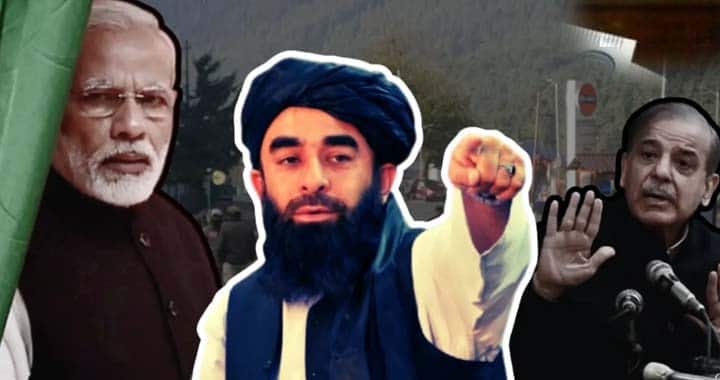In what many in Pakistan view as a stunning reversal of both history and ideology, the Afghan Taliban appear to be edging closer to India, their former adversary and one of the main backers of the ousted regime in Kabul. The move is being seen in Islamabad as not just diplomatically troubling, but also a betrayal of long-standing support and sacrifices made on behalf of the Afghan people during their decades-long struggle.
The latest flashpoint is the planned visit of Taliban Foreign Minister Amir Khan Muttaqi to New Delhi, which diplomatic sources say could mark a significant shift in regional alignments, and not in Pakistan’s favour.
“This is not just geopolitics; it’s a backstab,” said a senior Pakistani diplomat familiar with the matter.
“India did everything to erase the Taliban. We, on the other hand, took immense global pressure for allegedly doing the opposite. And now they want to embrace New Delhi?”
A Dangerous Rewriting of History
To many in Islamabad, the Taliban’s diplomatic overtures toward India reflect a deeply unsettling amnesia, especially given the historical record. In 1996, when the Taliban first seized Kabul, Pakistan was one of the very few countries to recognize their regime, standing nearly alone on the global stage amid widespread condemnation.
Contrast this with India’s record: New Delhi not only refused recognition, but actively supported the Northern Alliance and its Western partners during the post-9/11 U.S.-led invasion, the same forces the Taliban fought for two decades.
And yet, two years after retaking power in 2021, largely due to the geopolitical vacuum created by the U.S. withdrawal, the Taliban are seemingly turning their backs on old allies and cozying up to those who once sought their annihilation.
“Afghanistan’s power shifts have always strangely favoured India,” notes one regional analyst.
“In 1992, the Mujahideen captured Kabul with Pakistani backing but eventually aligned themselves with India. In 2021, the Taliban, again widely seen as having been sheltered diplomatically by Pakistan, are now treading the same path.”
India’s Opportunism, Taliban’s Short Memory
India, never one to miss a strategic opening, appears to be capitalising on Taliban-Pakistan strains. Hosting Foreign Minister Muttaqi may not translate into immediate trade or security deals, but symbolically, it represents a normalisation of relations that could have ripple effects.
Even if formal diplomatic ties remain limited, this budding engagement is seen as a major psychological and diplomatic setback for Pakistan.
“Islamabad is watching these moves with deep suspicion, and justified frustration,” says a former Pakistani envoy to Kabul.
“We’re being sidelined by the very group we supported, and embraced by a state that once armed their enemies. This is not realpolitik. This is betrayal dressed up as diplomacy.”
A Brewing Storm in South Asia
Sources say Islamabad is unlikely to stay silent. Already, Pakistan has invited anti-Taliban Afghan factions to an international conference held between September 20–30 in Islamabad, a signal that it is willing to recalibrate its approach in light of what it sees as Taliban ingratitude.
In this context, Taliban outreach to India, no matter how symbolic, is tantamount to playing with fire. For a movement that claims to uphold Islamic brotherhood and principles, turning toward a country accused of sponsoring terrorism in Pakistan, especially while Muslims in Kashmir face widespread human rights violations, is not only geopolitically provocative, it is, in the eyes of many, un-Islamic and morally indefensible.
A Strategic Miscalculation?
While some argue the Taliban are merely hedging their bets in a complex region, Pakistan’s strategic community views this move as a potential miscalculation with long-term costs. India’s interest in Afghanistan is less about stability and more about encirclement, a classic strategy of keeping Pakistan geopolitically boxed in.
If the Taliban believe India will ever truly support an independent, religiously driven regime in Kabul, let alone one born from an armed insurgency, they may be blindly walking into a trap, one that could isolate them yet again.
The Brutus of the Region?
In the end, Pakistan’s disappointment lies not just in geopolitics but in principle. The Taliban’s perceived alignment with India is seen as the act of a Brutus to its Caesar, an act of betrayal by those who were once shielded, supported, and recognised when the rest of the world turned its back.
What happens next remains to be seen. But one thing is clear: Kabul’s new “romance” with New Delhi has not gone unnoticed in Islamabad, and it may carry consequences far beyond diplomacy.





